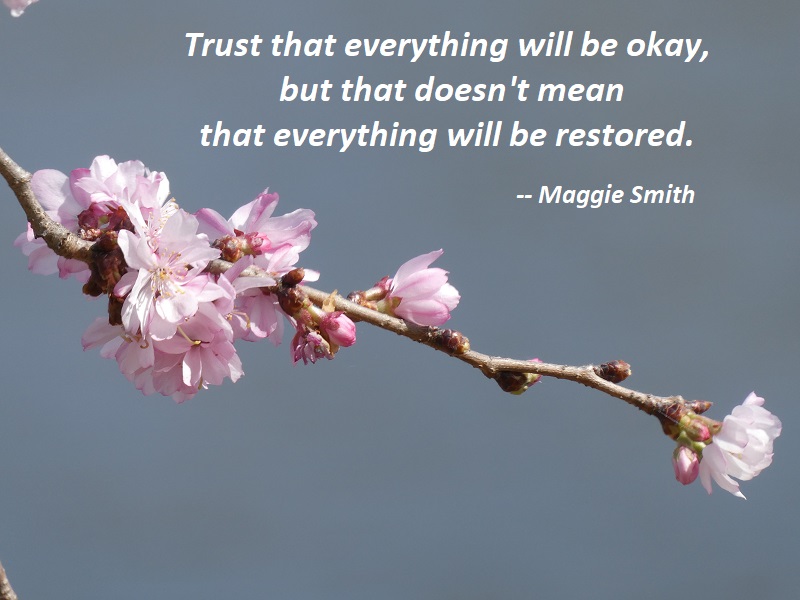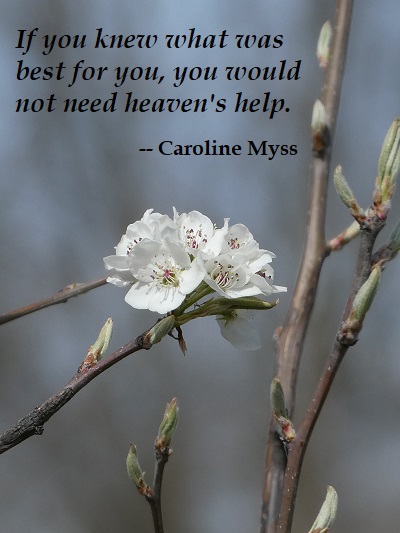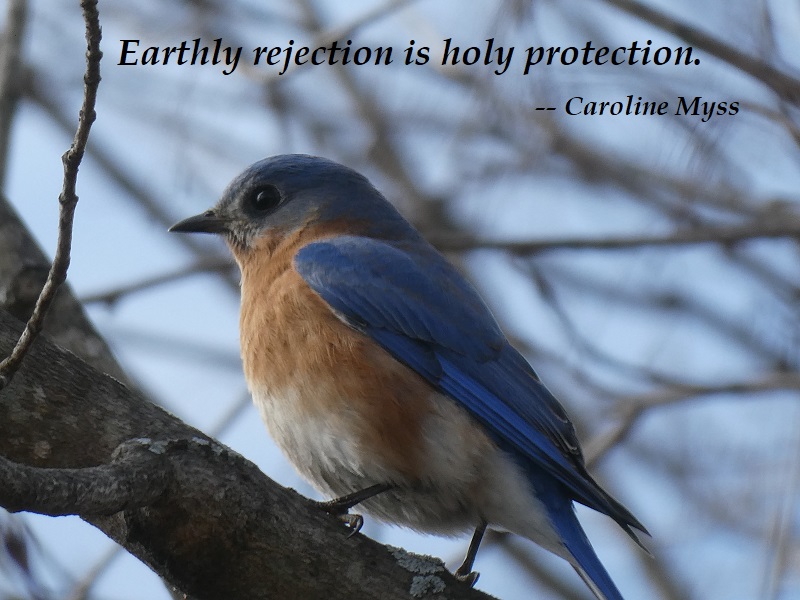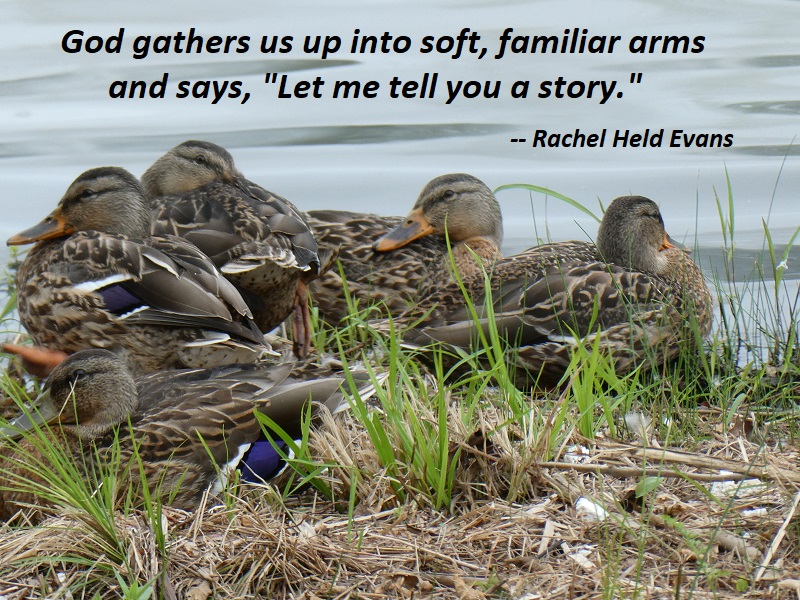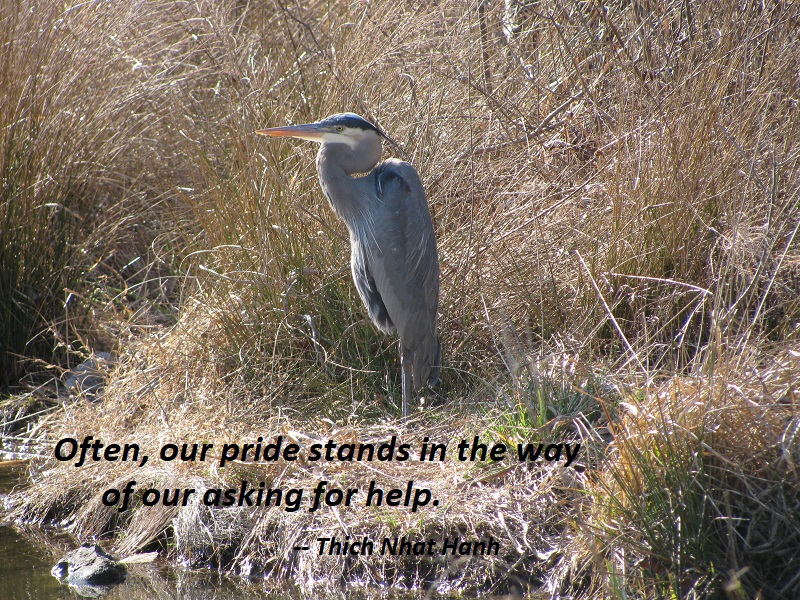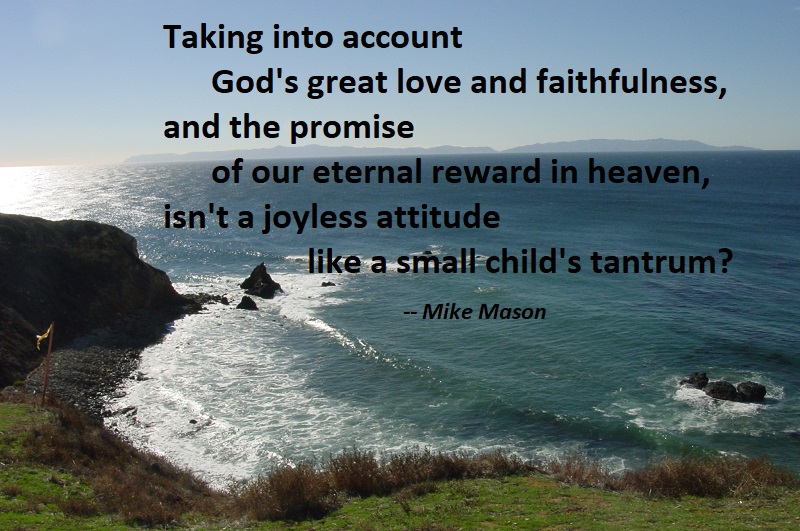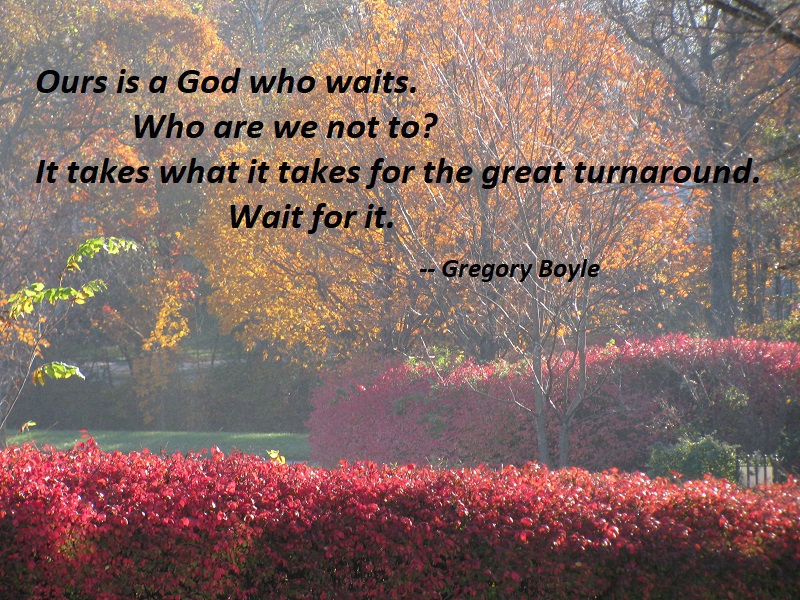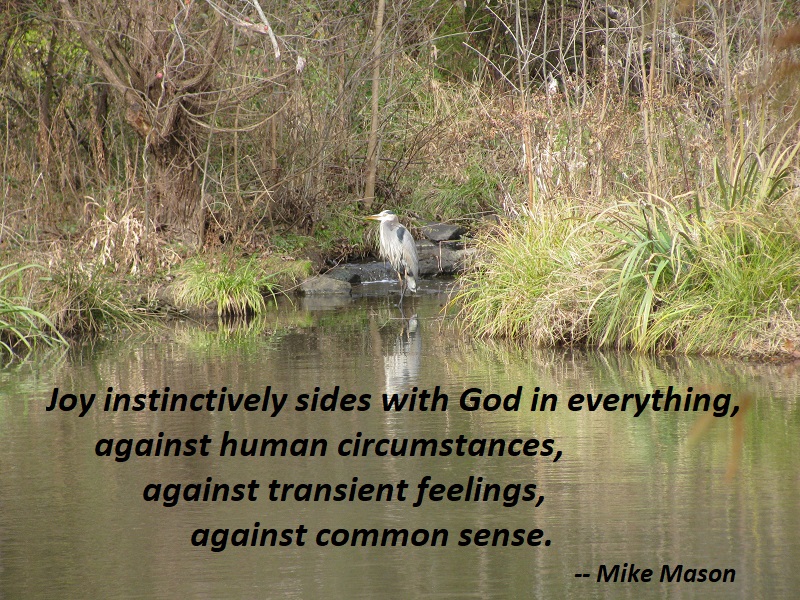
Joy instinctively sides with God in everything, against human circumstances, against transient feelings, against common sense. Common sense does not yield joy; joy is supernatural sense. To attain the supernatural I must adopt God’s point of view. Therefore I resolve to let God be right about everything. Instead of being sorry for myself, I let God be right for allowing my sickness or my difficulties to continue. Instead of worrying, I let God be right for not immediately intervening.
Joy comes from thinking God’s thoughts, doing His will, looking at everything through His eyes by the power of the indwelling Spirit. To embrace entirely God’s point of view, however briefly, is to be joyful. This is true even when God’s point of view involves sorrow over suffering. Joy is not proud, detached, or affected. It mixes well with suffering; it comprehends and effectively ministers to loss. Even in the midst of compassion for affliction, everyone who sides with God remains joyful.
— Mike Mason, Champagne for the Soul, p. 109-110
Photo: South Riding, Virginia, November 22, 2018
